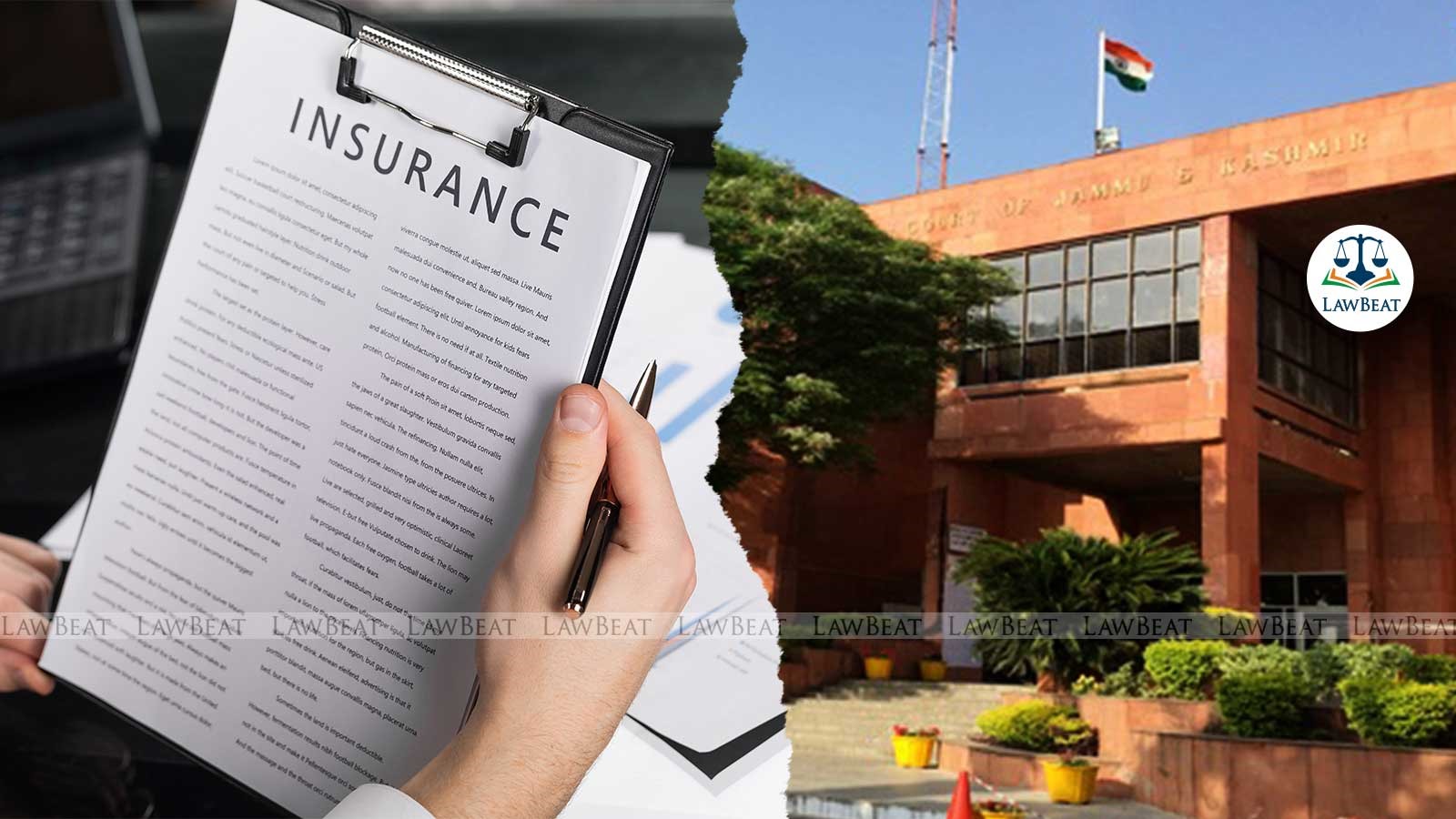Insurance Company Bound to Pay Full Claim Even After Government Grants Relief : J&K and Ladakh HC

The court emphasised that the government provides ex gratia relief to aid the victims, not to benefit insurers
The Jammu and Kashmir and Ladakh High Court has ruled that an insurance company is bound to pay full claim to the insured and cannot deduct the amount of given by the government as ex gratia relief from an insurance payout.
The Division Bench comprising the Chief Justice Tashi Rabstan and Justice M.A. Chowdhary, dismissed the appeal by Oriental Insurance Company, emphasising that “it does not lie in the mouth of Insurance Company to deny the claim to the insured upto the sum insured once it has taken the premium. The Insurance Company is bound to pay the claim against the sum insured. It is not the business of Insurance Company to see whether the person suffering damages has been paid some sort of relief from other source or not.”
The case originated from the damage suffered by a wine shop, owned by respondent Anil Kohli, during violent incidents in Kishtwar in August 2013. The shop was completely burnt, looted and damaged by the rioting mob. It was insured by Oriental Insurance Company for ₹22 lakhs for the period between January 11, 2013, and January 10, 2014. After assessing the damage, the surveyor appointed by the insurance company reported a total loss of ₹29,24,212.96. However, the surveyor recommended a net payout of ₹19,11,153.66 after making certain deductions. The insurance company, citing that the shop owner had received ₹3.50 lakhs as ex gratia relief from the government, further reduced the payout to ₹15,61,153. Dissatisfied with this adjustment, Kohli approached the J&K State Consumer Disputes Redressal Commission, which ruled in his favour, awarding him ₹19,11,153.66 with 10% interest from the date of the claim, along with litigation costs of ₹10,000. This decision was challenged by the insurance company before the High Court.
The insurance company argued that its adjustment was in good faith, aligning the compensation with the insured sum and considering external relief. However, the respondent maintained that he ex gratia relief was a gesture from the government with no legal binding on the insurance company's obligations. The respondent further argued that the insurer’s actions unjustly reduced the claim despite the fact that the loss was far greater than the insured amount.
The court, taking into account the arguments presented by both parties, noted that Oriental Insurance Company had not disputed the extent of damage reported by the surveyor, which stood at ₹29,24,212.96. Given that the insured sum was ₹22 lakhs, the net loss assessed by the surveyor was ₹19,11,153.66, still less than the total damages.
Citing the Supreme Court's judgment in Sudesh Dogra vs. Union of India (2014), the bench reiterated that “Ex-gratia is an act of gratis and has no connection with the liability of the State in law.” The court observed that ex gratia payments are acts of goodwill by the government and do not impose any legal obligation on insurers to reduce their liability.
Further referencing prior High Court rulings, including National Insurance Co. Ltd. vs. Kh. Gh. Mohd. Shah (1979) and United India Insurance vs. Gh. Mohd. Mir (1998), the court reaffirmed that “In unfortunate events like militancy, communal riots, external aggression or like factors which owe their origin be unabated turbulences, the Government, when comes foreword with ex-gratia relief for suffers, they want to come to the rescue of the sufferers alone and not to the rescue of their insurers unless the Government so desires and expresses its desire to do so.”
Consequently, the High Court upheld the decision of the J&K State Consumer Disputes Redressal Commission, ruling in favour of the respondent. Therefore, the appeal filed by the insurance company was dismissed.
Cause Title: Oriental Insurance Company vs. M/S Shalimar Wine Shop [MA No.185/2018]
